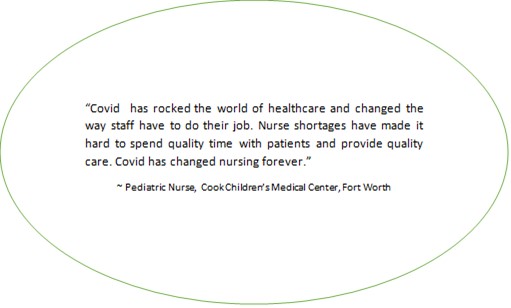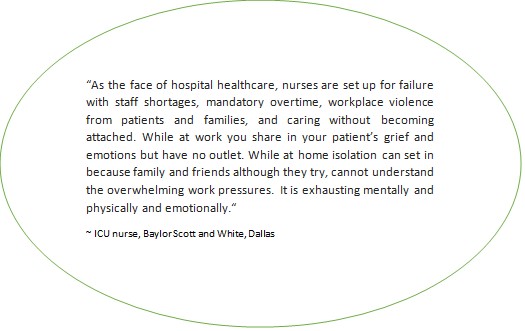It’s become a well-known phenomenon, healthcare workers (HCWs), burned out, exhausted, worn out mentally, emotionally, and physically, from the Covid-19 pandemic are leaving health care in droves. They have faced life-threatening situations, pathogen exposure, and shift overload, all with limited to nonexistent resources and support. This has taken a toll. The rate of depressive disorders among HCWs is alarming, suicidal ideation has doubled since the pandemic began and there has been a 25% increase in alcohol abuse and dependency.

Covid has challenged the public health workforce in unprecedented and unforeseen ways. The very high number of Covid cases and deaths, and the “waves” of Covid outbreaks that are likely to continue for many years to come, has underscored the urgent and desperate need to address HCW burnout. In January, the U.S. Department of Health and Human Services announced $103 million in awards to improve the retention of HCWs by reducing burnout through mental health promotion. Similarly, in April the Association of State and Territorial Health, used funds provided by the CDC, to launch a new public health workforce initiative designed specifically to address HCW burnout.
In spite of these efforts, there is little consensus or understanding regarding what exactly needs to be done to effectively support the mental health and wellbeing of HCWs. Two years into the pandemic, it has, however, become abundantly clear that widespread, systemic changes are needed, changes that will require novel solutions and innovative interventions. And here’s where the silver lining comes into play.

In a national survey administered to 12,881 nurses during the height of the pandemic, 44% of respondents reported that the most helpful thing they do to deal with burnout is “spending time in nature.” And when asked what they either hope to begin or will continue to do for burnout recovery, an even higher percentage (57%) said “exposure to nature.” It’s interesting to note that “spending time in nature” in order to conquer burnout was ranked higher than regular exercise, having a safe place to stay, or even spiritual connections.

The nurses are telling us what we already know! Research has consistently demonstrated that exposure to nature promotes healing and mental well-being. Data has long shown that green spaces have a protective effect on mental health and that exposure to nature results in quicker recovery rates from stress and is protective for depression and suicide. Perhaps it’s time to listen to the nurses and to the research that supports what it is saying – nature is healing.
References
American Nurses Foundation, Pulse on the Nation’s Nurses COVID-19 Survey Series: Mental Health and Wellness Survey 2, December 2020.
ASTHO launches resiliency program to support public health workforce, Feb 15, 2022.
Carlo Giacomo Leo et. Burnout among healthcare workers in the COVID 19 era: a review of the existing literature. Frontiers in Public Health 2021, 9.
